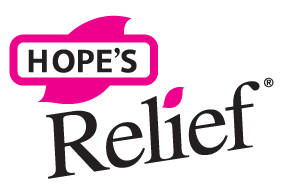 When you have a chronic skin condition, such as eczema, psoriasis or dermatitis, you may find that some behaviours can cause your condition to flare or worsen. If you notice your eczema seems to flare after a night out, you may wonder if alcohol causes eczema flare-ups or aggravate your skin condition. It’s quite possible. After indulging in a bit of liquid merriment, your skin could be red, itchy and inflamed. There are many reasons alcohol could be affecting your skin.
When you have a chronic skin condition, such as eczema, psoriasis or dermatitis, you may find that some behaviours can cause your condition to flare or worsen. If you notice your eczema seems to flare after a night out, you may wonder if alcohol causes eczema flare-ups or aggravate your skin condition. It’s quite possible. After indulging in a bit of liquid merriment, your skin could be red, itchy and inflamed. There are many reasons alcohol could be affecting your skin.
Alcohol Dehydrates
Alcohol is a diuretic and will cause your body to release stored fluids. Your body needs fluids to flush the toxins from your system. If you are dehydrated, your body will steal moisture from your skin to protect the internal processes.
Depletes B Vitamins
The B complex vitamins are depleted by the effects of alcohol. The misuse of alcohol can even affect vitamin B absorption. This is important to those who already have skin issues like eczema and psoriasis. Vitamin B deficiencies can cause inflammation and can cause, or worsen, existing skin rashes.
Blocks the Absorption of Vitamin C
Vitamin C is vital for the health of your immune system and the health of your skin. Vitamin C is shown to be a natural antihistamine and can reduce the symptoms of eczema. Alcohol blocks the absorption of vitamin C.
Triggers Inflammation
Gluten, sugar and dairy are the three most common dietary causes of inflammation. Alcoholic beverages such as beer and ales usually contain wheat and barley, while mixed drinks and cocktails can be quite high in sugar. These inflammation boosters can cause eczema to flare.
Accelerates Skin Ageing
Since alcoholic beverages can be very high in sugar, they tend to be ageing for your skin, causing abnormal glycation. As skin ages, it is more prone to redden, dry, crack, and wrinkle. Aging skin is less resilient.
Suppresses the Immune System
The simple sugar content in alcohol can suppress your immune system for up to five hours. The body’s ability to conquer bacteria and viruses is cut in half. This can cause eczema to worsen.
Can Contain Toxins
There are many ways to produce alcohol. Low-quality alcohol can contain harmful toxins that can affect your skin. It may be worth spending a little bit more for higher quality alcohol to avoid unnecessary toxins.
Kills Good Bacteria
Gut health is essential to overall health. Regular alcohol consumption can kill off the good bacteria in your gut and lead to a candida overgrowth. Candida can use alcohol as a food source. Candida overgrowth can cause eczema.
Dilates Blood Vessels
Alcohol also dilates blood vessel. If you have eczema or psoriasis, the dilation of blood vessels can cause skin to become red, itchy, inflamed and uncomfortable.
Can Irritate Your Liver
An inflamed immune system affects your liver. When inflammation aggravates your eczema, the additional inflammation can also irritate your liver. This irritation makes it more difficult for your liver to process alcohol and create additional problems for those prone to eczema outbreaks.
Alcohol consumption will affect some people with eczema. Products containing alcohol can also irritate your sensitive skin. The health of your skin is important to us. To heal and protect your sensitive skin, try Hopes Relief Premium Eczema Cream, Australia’s number one eczema and psoriasis treatment.
